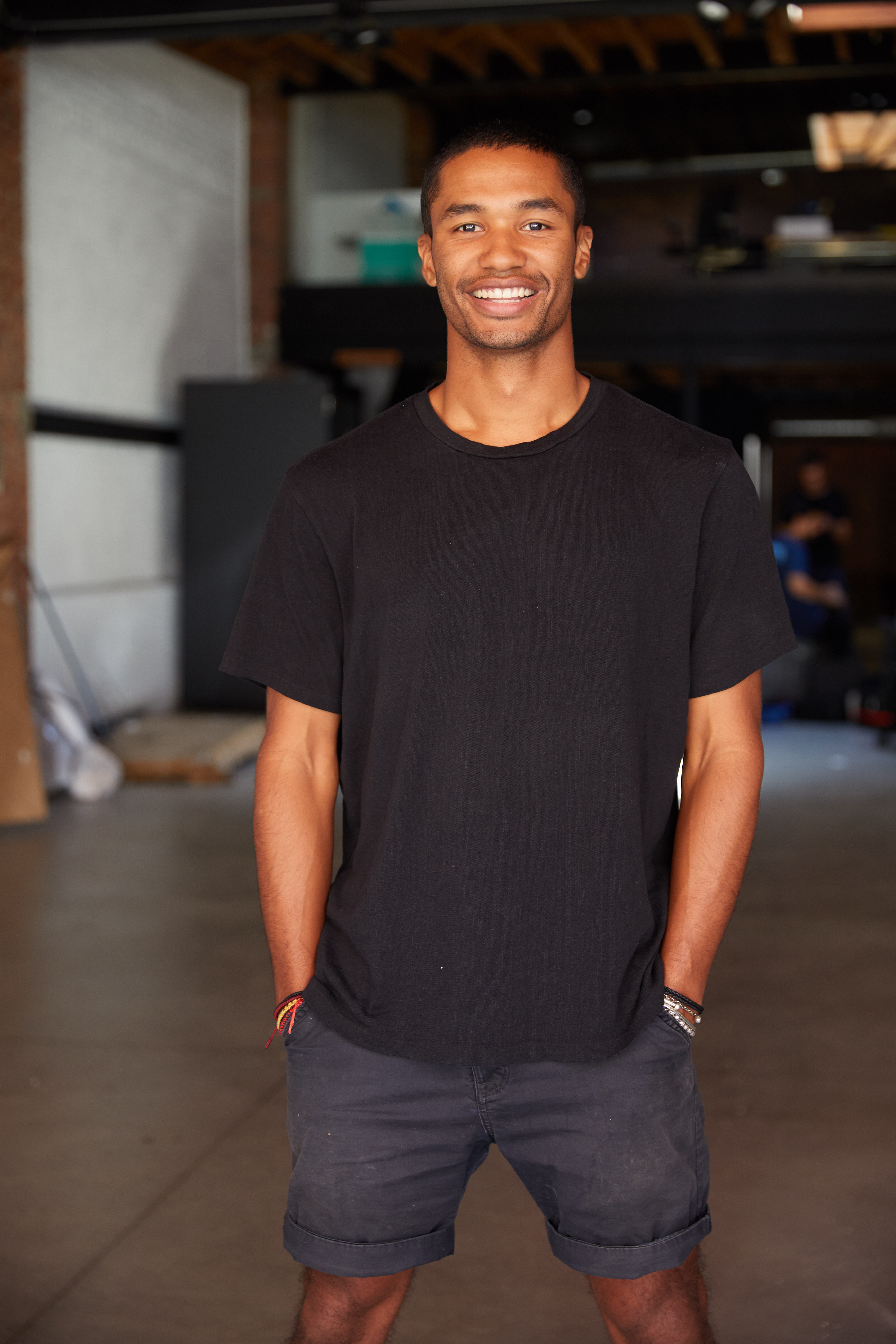1) What’s your backstory?
I was born in New York City and went to Brown University to study the environment with a focus on renewable energy economics. My first business was actually providing DJ services. Given the marketplace where I grew up, I invested $1,500 dollars and turned it into $23,000 dollars by the time I was graduating from high school at 18 years of age. At that time, I came to the realization that I had a knack for entrepreneurship.
In addition, at a very young age In middle school, I became close friends with my later-to-be Co-founder of Tipster, Andrew Duplessie. As children, we both began to imagine a future of working together on something big. The notes we collaborated on encompassed many ideas with a singular focus that we would both try to change the world in a positive way.
Besides entrepreneurship, my passion has always been sports, specifically soccer. I played for the Brown Men’s Soccer team for four years and captained the team my senior year. After completing my degree from Brown University, I actually turned down an offer from Goldman Sachs in order to move to Sweden and Greece to play soccer professionally.
While in Europe, Andrew and I came up with the idea for Tipster where we began hashing out the technical logistics and building that company. Furthermore, my agent at the time wanted to expand his soccer agency, so I decided to help him launch a new agency called “Only4stars”. Later, I became both his Co-founder and partner of that enterprise.
After playing professional soccer overseas, I returned to the United States to focus full-time on Tipster and Only4stars. Tipster was initially launched as a personal styling app and chat widget. We built a network of 3,000 stylists, and technology to help them commoditize their free time and social presence. We were accepted into Stanford StartX incubator where we realized that our tech platform had larger implications beyond fashion.
Together, we pivoted, and transitioned our tech stack from a B2C to a B2B customer acquisition engine for brands, mobile applications, and digital asset companies.
We then scaled the business to 1 billion impressions and 10 million downloads. In June of 2019, we sold the company to DTX, Tim Armstrong’s new DTC ecosystem and venture.
I am also the co-founder of BlocSide, an AR avatar platform for professional athletes and entertainers, as well as the Co-Owner of Dundalk F.C., a professional soccer team in Europe.
2) What was your spark, where did it come from?
I’ve probably always had a spark within me. As I matured, I recognized that my passion and inspiration for business development came while overseas playing football. It gave me a different perspective on life, and time. Living alone in a city where you don’t necessarily know anyone, don’t speak the language and all you have to do everyday is to play the sport you love, definitely makes a person consider priorities.
This time being alone and on my own also was enlightening because it eliminated the pressure of the society in which I was raised. Time was my spark, and I used that time to execute on an idea, whilst letting it take over my thoughts.
Many entrepreneurs have sparks every day. I’ve realized that it is those of us who execute on the idea and opportunity, giving themselves a chance for success.
3) Many perceive the entrepreneurship as a solo journey. Who or what has helped you most along your journey?
Every founder needs an outstanding team of talented and dedicated people around them. It sounds like a cliche but you are only as good as the team around you whether they are employees, partners, co-founders or advisors.
One must be self aware of what you bring to the table, what those talents are, and how to find people who can do what you cannot. When you find those people you have to trust them, and they you.
I absolutely found this level of trust with Andrew at a very young age. He is the passionate creative and I am the structured executer. Without the support of each other, and our innate ability to be completely blunt with each other, we certainly wouldn’t have been as successful as we are today. Our ability to share our business ideas and collaborate with the highest levels of confidence enabled us to drive towards success in unity, while maintaining our friendship.
Lastly, I do come from an entire family of entrepreneurs. My grandfather, a black man from North Carolina, moved his family to New York City and built a successful dental practice in midtown. My father built and sold a tech company, and my mother was one of the most accomplished black women on Wall Street. I was raised with a set of standards and expectations, and this culture along with their support, has been the foundation of my success.
4) How do you deal with challenges?
75% of the time at a startup are what I consider to be “down days.” Days where you fail, where things don’t go as planned, where you feel beaten up and tired. The most challenging part to overcome is finding continued motivation and passion by looking forward. You must love the struggle, the failures, and the tough-days, appreciate the 25% of the days where you will get a win.
The other major challenges that exist are people. Team management, and personnel management is often the reason why startups fail. Finding quality talent, maintaining quality talent, and motivating them, all the while making sure you don’t run out of money. By far, this is what keeps many founders awake at night!
I keep it simple. If I can’t trust you, you can’t deliver, and your role is not vital to the company priority and direction. Hire fast, fire fast!
5) What are your plans for the near-future?
In the near future, I will be leveraging my experience to build innovative technologies at DTX, and directionalize the next phase in building the DTX ecosystem.
Additionally, Andrew and I have a pipeline of initiatives and venture’s that we will be launching over the next 24 months including sports and entertainment spaces.
6) Anything else you would like to add?
I happen to be severely Dyslexic. While growing up, I was fortunate enough to have the support of tutors yet, I still struggled to be defined as “intelligent” by the standards of academic grading systems. Now, my success and or intelligence has not been gained from learning within the confinements of the educational system, but rather in doing, experiencing, and exploring my artistic and entrepreneurial endeavors.
I’d like to be a champion for this with disabilities and share my story to inspire those who may not have had the opportunity for tutoring or extra time to invest. I want to ensure that success can be achieved by all children regardless of race and academic aptitude testing. It is important we all realize that one’s intelligence is not defined by pure performance in the classroom.
Furthermore, we must open up the conversation of how young people learn, and how the majority of the communities most affected by the lack of flexibility in the current educational system is the black and POC community.
Public School budgets are set up based on how well students do on standardized tests. Therefore, funding goes towards the top students and those with learning disabilities are not invested in, rather they are neglected. These students often have the creative extracurriculars taken away. We need to update today’s standardized methodology or structure of the educational system in the United States allowing all children to learn in their own, highly unique ways.


